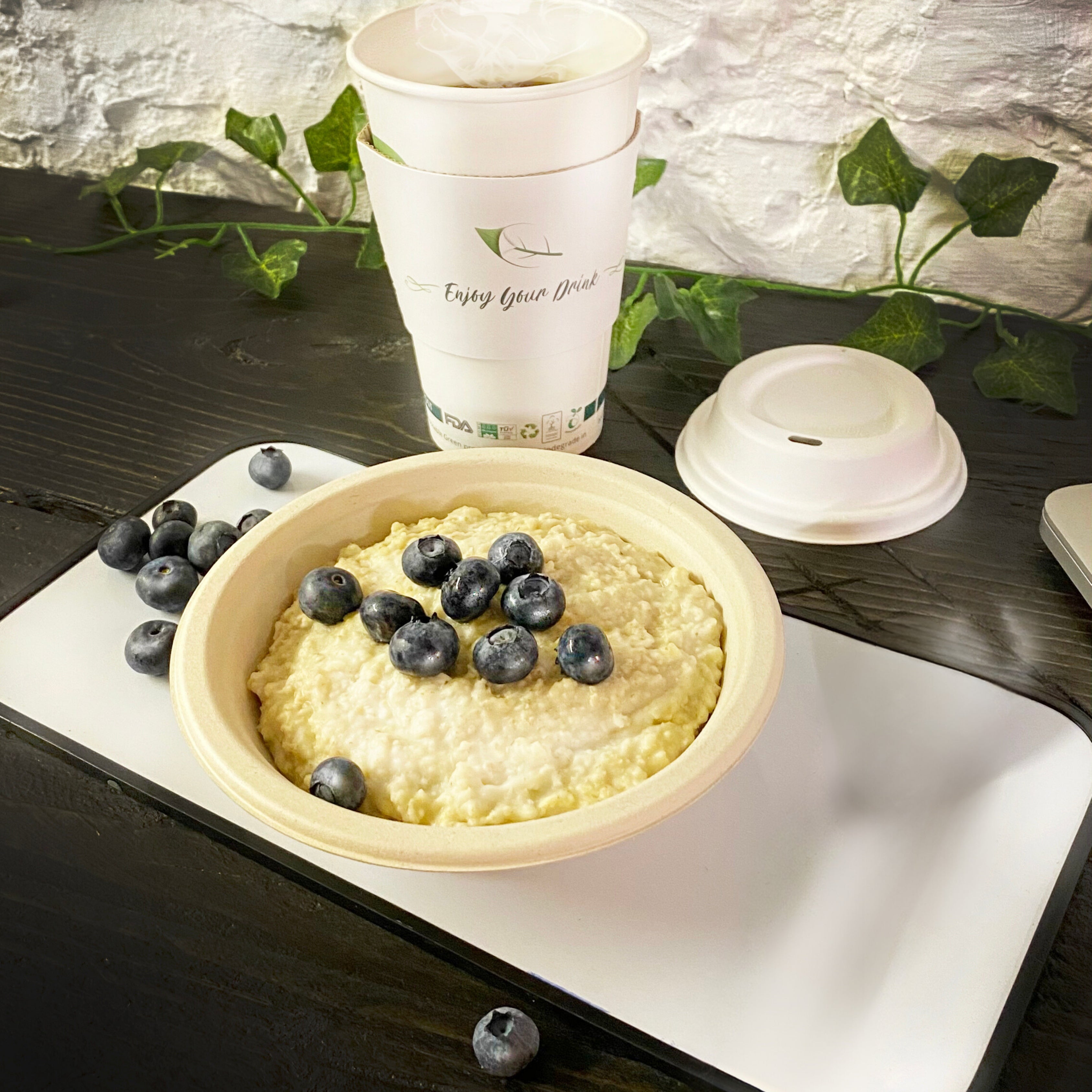How we honour our commitments to each other, our customers, our suppliers, our communities and the environment.
ENVIRONMENTAL RESPONSIBILITYDISPOSABLE GREEN® has created a green business model which exploits the conversion of fallen arecanut leaves into a product that completely decomposes into soil within 50 – 60 days, as opposed to hundreds of years for plastic and polystyrene. The enterprise and its partners have so far replaced almost 10 million plastic or polystyrene foam disposable plates, corresponding to saving tens of tonnes of plastic waste and in turn reducing CO2 equivalent emissions by hundreds of tonnes since the outset. Targeting further expansion, DISPOSABLE GREEN® aims to sell enough to replace 5,000 tonnes of plastic plates over the next 10 years, which would also save a corresponding 25,000 tonnes of CO2 equivalent emissions. The value chain is built around upcycling an abundant biowaste used as raw material. DISPOSABLE GREEN® works hard to reduce environmental impact also in its production process, for example reusing water from sheath washing in a closed loop. Recyclable plastic foil for packaging is currently the only potentially polluting material used, but DISPOSABLE GREEN® is very keenly looking at diversifying packaging methods to replace part of the plastic with PLA based plastics wrapping or other sustainable alternatives. In addition, employees and trained youth and women have developed a sense of waste recycling and understanding for biodegradable materials. Marketing campaigns have also increased the environmental awareness of the target and wider audiences. DISPOSABLE GREEN® also has an indirect impact on forests: the alternative income opportunities DISPOSABLE GREEN® is providing to the rural communities replace illegal logging or wildlife poaching. SOCIAL RESPONSIBILITYSocial impact is created as a result of employment and additional income that is secured along the value chain. Around 2,000 arecanut leaf collectors were earning an income of up to GBP 140 per month (seasonal). For many, this was the only source of cash income complementing subsistence farming. DISPOSABLE GREEN® together with the local manufacturing unit raised sheath procurement prices by 30%, increasing income at the first step of the value chain. As 70% of those collectors are women, income is spent largely on improved diets and children's education. Local youth are provided with skills training which enables them to find employment with plate production units, or even to set up their own unit. Each of the 110 established village unit consists of 4-5 people. 90% of the units are run by men. While DISPOSABLE GREEN™ together with the local manufacturing unit initially concentrated mainly on training and employing young men in the production of plates, it is now also fostering women’s empowerment, encouraging women to set up smaller household-level production units and to become entrepreneurs. With support from its governmental partners, 350 of these smaller units are currently being established, 90% of them run by women. Thus by and large, around 500 young men and 400 women are working in the external production units and have received training on the job or in formal training programmes. In addition, the participatory nature of DISPOSABLE GREEN approach strengthens the overall community structure; the whole communities are introduced to the concept, and it is only upon their collective appeal that the units are introduced. 
|





















